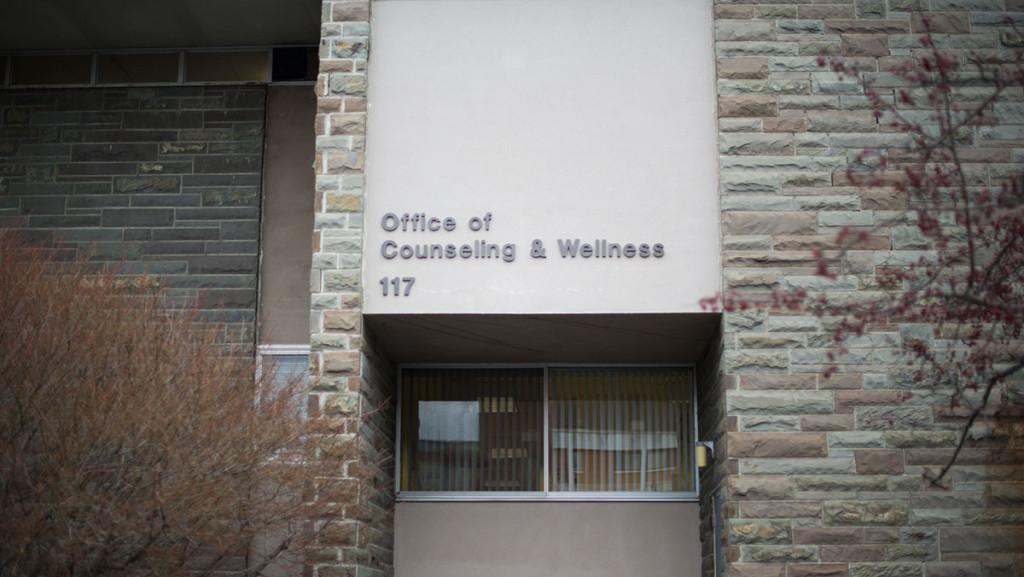In Spring 2015, many students needing services at the Center for Counseling and Psychological Services had to wait two to three weeks to see a counselor. A year later, the wait time has diminished, yet students still have concerns in other areas.
To fight for more administrative support of mental health resources, students started a campaign called #getCAPSready in Spring 2015. Over 1,300 students signed a petition demanding more funding for CAPS, prompting the addition to the counseling staff of a temporary postdoctoral resident, a position that will be renewed each year. A telephone-based assessment system aimed to more efficiently schedule appointments was also implemented.
With these additions come concerns that the fluctuation of counselors from year to year and assessments over the phone will diminish personal connections between counselors and patients, which are crucial with psychological counseling.
The new screening system has been in place since the beginning of the 2015–16 academic year. Now, when a student goes to CAPS, an appointment is set up over the phone to gauge the severity of the case and individual needs. A subsequent in-person appointment is then scheduled. However, members of the campus community have expressed concerns about the system’s effectiveness.
CAPS Director, Deborah Harper, said the wait time for a phone call is typically only two to three days, as opposed to a month previously, and the time until an appointment is scheduled ranges from several days up to a week. The system has made the process more efficient, but Harper said she is concerned about the absence of personal interaction over the phone.
“Nonverbal cues are really important,” she said. “And it works both ways. It helps us kind of read … what does this look like compared to what you’re saying?”
This was an issue for freshman Dylan Shane, who went to CAPS in Fall 2015 and described his experience with the new system as repetitive.
“I repeated everything I said on the phone,” he said. “He asked me all the questions again, and I kind of heard the same thing,” Shane said.
Freshman Emma Nigrosh walked into CAPS during drop-in hours at the beginning of Fall 2015 for her anxiety. She said that after meeting with counselors, she was told she would receive an email with options for next steps, which she said she did not receive. She tried again in March with the same results. Then she sent the center an email.
“For those two and a half weeks plus spring break where I was in this limbo of, ‘I know I have a problem, and I can’t fix it because there’s such limited resources,’ was definitely such a hard time,” she said. “If someone was very anxious or depressed, like that could be a time when they could do something so harmful.”
Harper said the demand for services at CAPS is usually high during the first and last weeks of the semester and that wait times typically increase during these periods, which is why students like Nigrosh sometimes still report long wait times.
On the other hand, Harper said the addition of Abimbola “Bola” Afolayan, the postdoctoral resident in the Center for Counseling, Health and Wellness who was hired in October 2015, has helped decrease wait times as well as add a diverse perspective to a mostly white counseling staff.
“It’s really nice to have a face on the staff where students of color can say, ‘OK, there’s somebody that I think I might prefer to see,’” Harper said. “I think we basically look like a staff of a lot of white people … and that can look like it’s not welcoming.”
Afolayan said the center is taking strides toward a more inclusive environment but that there is still much work to be done.
“One psychologist of color cannot cut it,” she said. “I’d rather push for all of us being ready for every student, including minorities.”
While Harper said CAPS is very fortunate to have Afolayan for one year, she said she wishes the administration would provide enough funding for a permanent position, saying there is value in having long-term counselors with whom students can form connections.
“When you have a temporary staff and you’re disrupting relationships,” Harper said. “It has an impact on how well students feel supported and connected.”
Senior Amelia Erikson, who has used CAPS in the past during her time at the college, said having consistent counselors is ultimately beneficial for those who use CAPS.
“If you’re sitting in a room for an hour with a stranger, it can take a little bit to really get to those big problems,” she said. “So if you have someone that’s only here for a couple weeks, or maybe only a year, or if you’re changing the counselors you’re talking to all the time, you might not get the type of help that you’re looking for.”
Harper said while it is easier in the short term to hire temporary staff like Afolayan, in the long term, it is less efficient.
“If you’re looking kind of long term — stability for the students, ongoing relationships — I would say it’s less efficient to have the temporary staff because you’re always kind of training and orienting them,” she said.
Junior Matt Hirsch wrote a commentary on the state of CAPS for The Ithacan on April 20. He said in an interview that one way in which CAPS could receive more funding is to market to alumni who could allocate donations to the center. However, he said he places the blame for the center’s inadequacy of resources on the administration.
“I believe they have been making more efforts to help allocate more resources to CAPS so they can help students, but there’s still a lot of room for improvement,” Hirsch said.
Rory Rothman, associate provost for student life and educational affairs, helps oversee CAPS from an administrative level. He confirmed Harper’s claim that in the long run it is more efficient to hire a permanent staff member, because it cuts back on costs of hiring and training.
“For these reasons we are in the process of exploring the possibility of converting the postdoctoral resident position to a permanent social worker position,” he said in an email statement.
Shane said despite his disappointing experience, he recommends that students go to CAPS if they feel they are facing issues with mental health.
“Go anyway,” he said. “Just to talk to someone. It might not help, but at least you’ll be able to say what’s going on.”








